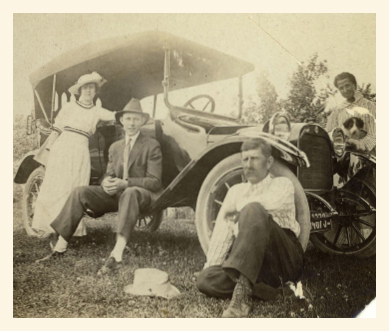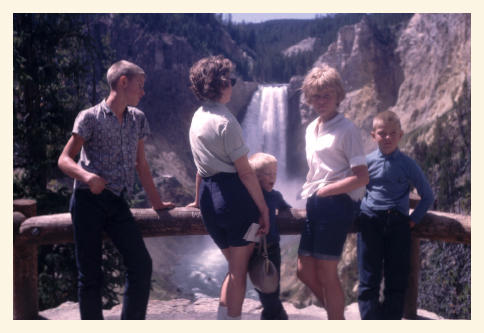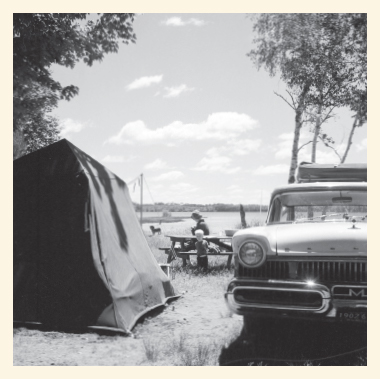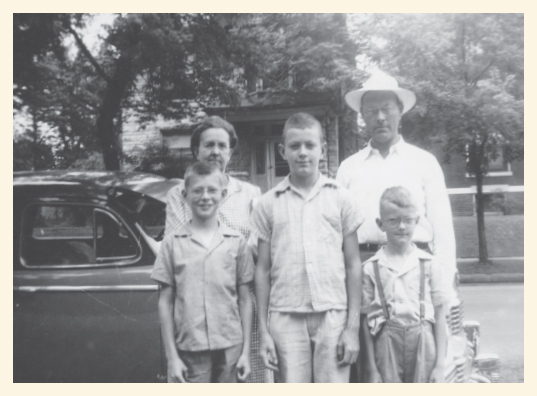By Eric Peterschmidt
Did you know that having a strong family narrative can be very beneficial to your children? Not only has it been proven to be good for their wellbeing, but establishing it can be fun to do.
What do I mean by a family narrative? A family narrative is knowledge of the family’s multi-generational story, including the ups and downs of life. When they were up, why, when they were challenged and how they recovered. It is knowing that they are a part of a “larger self” that can provide them with this self-awareness “inertia” to help them get through their own challenges.
You might think your children are knowledgeable already, because you regularly connect them with extended family. If you are doing so, fantastic! However, even if you are, to what degree do they know the story? Now, you can actually measure their knowledge by having them take a very simple and quick family assessment test.
Dr. Marshall Duke and Emory University’s Family Narratives study created “THE ‘DO YOU KNOW’ SCALE” (presented here in a Psychology Today story). Using 20 yes and no questions, the results serve as an indicator of the degree to which a child knows about their family. How can that be? Well, the major determinant of what questions to include are that they had to be things the children would not know, unless they had been told it by another family member. This is because the question are about events that occurred before the child was born!
But the family narrative is not just knowing the facts. Dr. Duke team’s research has shown that it is the process of learning that is the key. That is where it is fun and easy, because the researchers found that the time and place that this “process of learning” occurred, was at the dinner table, on family vacations and other family gatherings. And it should be no surprise too, that the adult person most likely to be engaged in these conversations with children were their maternal parents — mother and grandmother.
What is the specific benefit of knowing about your family’s history? How can it really help? Understanding how one’s ancestors made it through not only good times, but the bad ones, provide an amazing reference for all of us to call on when we are challenged. It can contribute to a sense of pride about their family. As noted by the Family Narratives Project research team “Creating a shared history by reminiscing helps to maintain emotional bonds within a family. Children are also learning about how to conceptualize themselves within the family. Who am I? What kind of experiences have I had? How do I relate to other people? And how does my past experience help me understand who I am today?
We see examples of this pride all the time – even beyond family. For example, being part of a loyal fan base for a sports team creates a sense of camaraderie. Or in the military, knowing the history a cadet is a part of when passing through the gates of West Point helps to create loyalty amongst the troops.
Here’s what you can do!
If you too are interested in your family narrative, what can you do to build it? Here are a couple things to try:
1. Start by asking your children or grandchildren to take the “Do You Know” test.
2. Then, this is where the fun begins. Use the results to start talking about things. Review and discuss the questions with them. Even on the questions they answered “yes” to, probe them. How did they know that? What did they hear happen? Would that happen the same way today? Do others have different stories? If so, why? On the questions they said “no” to, you may not know the answer either. Who would know and how can you ask them?
3. As with any good interview, use open ended questions like “how do you think…” or “why would this ….” Versus yes and no, to get a conversation going.
4. Where and when do you have these conversations? You don’t have wait until you go on vacation to do this. There are few places better than your own kitchen table. At mealtime. Sure – you may get the “eyes rolling” response, so look for things you think might be of shared interest with your kids – based on their current interests and activities. For example, are they into sports? Or, do they have aspirations for a certain profession? If so, were any ancestors in that field?
5. Use props. A photograph or two so your children can see what the people in question looked like, wore, where they lived, etc. A good friend of mine periodically finds an item in the house (that the kids have probably seen forever, but did not know what it was) and puts it on the table. Remember, that it is not the photo or object that are necessarily interesting – it is the story behind it.
6. The holidays provide an amazing time to include extended family in this conversation. Share what you are doing with those visitors so they are prepared. Make sure they all know to not just talk about themselves and other family members they knew, but do so knowing these children may not know any of the back-story. Often when adults are telling stories with each other, they come with a high-level of knowledge already and don’t explain the background – for example “who Uncle Max was”. Don’t talk down, but with them — just educate to make sure things are explained in a way that a family narrative foundation is established. And you all might just be surprised by how much children love stories!
I have been blessed for having a life surrounded by a very tightknit family. From my youngest days, I remember hearing the stories with multi-generational visiting family, and after I went to bed, hearing laughter emanating from downstairs.
It created a very warm and comforting feeling in me – I just thought “this is what family is”. And it was not like we didn’t have family issues. We did. However, the family narrative and love for each other superseded that, and to this day, that culture lives on. I see it with my children, nephews and nieces who love hearing the stories – in fact, often want to hear the same ones over and over! It is this cross-generational process that is magic, and that is the family narrative.

References and Related Topics
- New York Times Article “The stories that bind us”
- Emory University Family Narratives Lab.
- Psychology Today Article “The “Do You Know?” 20 Questions About Family Stories“
- Laird Norton Wealth Management Article “How Family Stories Can Strengthen and Unite”



